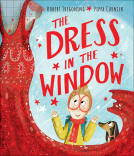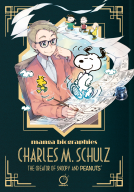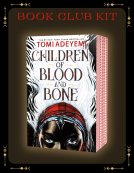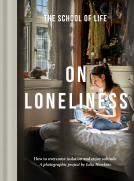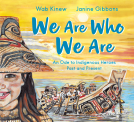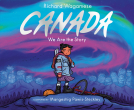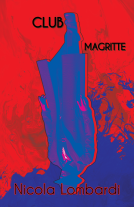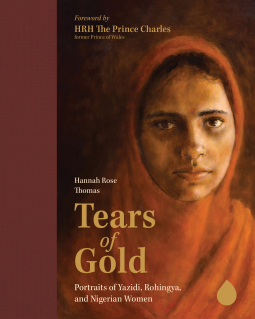
Tears of Gold
Portraits of Yazidi, Rohingya, and Nigerian Women
by Hannah Rose Thomas
This title was previously available on NetGalley and is now archived.
Send NetGalley books directly to your Kindle or Kindle app
1
To read on a Kindle or Kindle app, please add kindle@netgalley.com as an approved email address to receive files in your Amazon account. Click here for step-by-step instructions.
2
Also find your Kindle email address within your Amazon account, and enter it here.
Pub Date Feb 06 2024 | Archive Date Feb 06 2024
Plough Publishing | Plough Publishing House
Talking about this book? Use #HannahRoseThomas #NetGalley. More hashtag tips!
Description
A celebrated young British artist uses her gift to convey the dignity and resilience of women survivors of violence in forgotten corners of the world.
This debut art book by British artist and human rights activist Hannah Rose Thomas presents her stunning portrait paintings of Yazidi women who escaped ISIS captivity, Rohingya women who fled violence in Myanmar, and Nigerian women who survived Boko Haram violence, alongside their own words, stories, and self-portraits. A final chapter features portraits and stories of Afghan, Ukrainian, Uyghur, and Palestinian women.
These portraits, depicting women from three continents and three religions, are a visual testimony not only of war and injustice but also of humanity and resilience. Many of the women have suffered sexual violence; all have been persecuted and forcibly displaced on account of their faith or ethnicity.
Hannah Rose Thomas met these women in Iraqi Kurdistan, Bangladeshi refugee camps, and Northern Nigeria while organizing art projects to teach women how to paint their self-portraits as a way to reclaim their personhood and self-worth. She gives women their own voice both by creating a safe space for them to share their stories and by using her impressive connections to make sure their stories are heard in places of influence in the Global North.
Thomas uses techniques of traditional sacred art – early Renaissance tempera and oil painting and gold leaf – to convey the sacred value of each of these women in spite of all that they have suffered. This symbolic restoration of dignity is especially important considering the stigma surrounding sexual violence. Hannah’s work attests to the power of the arts as a vehicle for healing, remembering, inclusion, and dialogue.
Long after the news cameras have moved on to the next conflict, this book shines a spotlight on the ongoing work of healing and restoration in some of the most vulnerable and marginalized communities around the world.
A Note From the Publisher
All publisher profits from this book will be donated to relevant charities.
Advance Praise
One of Hannah’s aims is to capture not only the courage and stoicism of the women who have suffered so much, but also the nobility, dignity, and extraordinary compassion that many of them manage to retain, despite their traumatic experiences. I very much hope that this beautiful book, Tears of Gold, will help enable the Yazidi, Rohingya, and Nigerian women’s voices to be heard, as well as to highlight the issue of the persecution of religious and ethnic minorities in general. All too often, their stories of suffering remain unseen and unheard – but Hannah Thomas is doing tremendous work in bringing their stories out into the open. May her powerful paintings spread the word and, God willing, have a positive impact in relieving the suffering of some of the most vulnerable and marginalised communities around the world. —HRH Prince Charles, prior to his accession as HM King Charles III
British artist Thomas’s stunning debut presents her paintings of two dozen women who have endured persecution and displacement across the globe. Thomas visited compounds and refugee camps to interview her subjects, and renders their stories with a brevity that belies their intensity.…But Thomas’s portraits are the high point: she captures her subjects’ particularities, as well as the sometimes-haunted, sometimes-resolute gaze they share.…Fashioned with uncommon care, this impresses. —Publisher's Weekly, starred review
Hannah Rose Thomas is a remarkable painter and story-teller. Her publication: “Tears of Gold” is not simply an exposé of her artistic skill, it is much more than that – it is her deposition, her witness statement to the suffering of a fellow being. Containing the portraits of survivors of extreme violence (and sexual and gender-based violence in the case of many) the book centers on their individual stories and, by extension, the horrific atrocities experienced by their communities. … There may well be tears – after all, their pain is immense – but those tears are often unaccompanied by other emotions. There is so much control and a natural humility, the effect is simply startling. It is not what the observer commonly expects – and Hannah captures the authority within each survivor perfectly and beautifully. —Prince Zeid bin Ra’ad al-Hussein, former UN High Commissioner for Human Rights
As I sobbed my way from one grim life to the other, I felt increasingly certain that this was beautiful art doing beautiful things in a terrible world. Bravo, Hannah Rose Thomas. —Waldemar Januszczak, The Sunday Times
Hannah Rose Thomas has painted these portraits with her whole heart and likens this painting to prayer; it is surely an act of love. As the women look out at us from their portraits and share their words on the page, this book brings us close to their experience, helping people everywhere understand what these women have endured and how they can help. —Friends Journal
Marketing Plan
- Launch events with art exhibition in London, New York, and elsewhere
- National publicity campaign, with coverage expected on NPR, Washington Post, Wall Street Journal, and more
- Giveaways and promotions on GoodReads, NetGalley, Open Road, and others
- Significant social media campaign wtih expected reach of 2.5 million impressions
- Feature in Plough Quarterly magazine, circulation 15,000
Available Editions
| EDITION | Other Format |
| ISBN | 9781636080802 |
| PRICE | $49.95 (USD) |
| PAGES | 128 |
Available on NetGalley
Average rating from 29 members
Featured Reviews
Artist and humanitarian Hannah Rose Gold provides art therapy for those at refugee camps. This book contains women’s stories — harrowing but hopeful — as well as the women’s self-portraits and paintings of them by Gold. She has deliberately styled them to look like madonnas, complete with the gold leaf. I devoured this powerful book in less than two hours. In addition to the Yazidi (killed and enslaved by ISIS), the Rohingya (suffering genocide in Myanmar) and the Nigerian women (kidnapped and forced into marriage by the Boko Haram), Gold includes a few portraits and stories by female former judges from Afghanistan, Uyghurs from China, Palestinian refugees in Gaza and Ukrainian women fleeing violence. Painful and empowering at the same time.
In the interest of full disclosure, I received this book from NetGalley and Plough Publishing House in exchange for an honest review.
A beautiful work of love, Tears of Gold is a one of a kind work created by British artist and human rights activist Hannah Rose Thomas.
Rose Thomas spent time in various refugee camps teaching art and self portraiture to women. She traveled to Iraqi Kurdistan, Bangladeshi refugee camps, as well as Northern Nigeria. This work of art includes her own paintings as well as portraits created by the women. Interspersed between the portraits are stories - stories of hope, as the women have overcome great trauma.
- Yazidi women who escaped ISIS, Rohingya women who fled Myanmar, and Nigerian women who survived Boko Haram. All have encountered violence before they escaped and most have had to deal with multiple obstacles as they try to assimilate into a culture that may not want to receive them.
I love this book and will gift it to many of my human rights warrior friends. Support this project! Read this Book!
#Ploughpublishing #Tearsofgold #HannahRoseThomas
 Debra B, Reviewer
Debra B, Reviewer
Hannah Rose Thomas is an accomplished artist and a human rights activist. She traveled to refugee camps and taught women to paint themselves as she heard their stories.
These were Yazidi, Rohingya, and Nigerian women who had suffered the worst that the world could offer. Kidnapped from their homes, raped, sold, lost husbands, children and entire families. Their pain cannot be measured. Their stories are filled with grief and horror. Hannah used art to give them some healing as they painted themselves, many times with tears of gold or red.
The last chapter features Afghan, Ukrainian, Uyghur, and Palestinian women.
Hannah's portraits of them were painted as if icons and in that style. They are beautiful and expressive.
No one can view this book and not be touched. Many questions came to my mind. Why does the world ignore these situations, which are still going on? Why are false narratives accepted, especially ones we have heard regarding the Rohingya and Nigerian women and the horror and genocide taking place there as well as among the Uyghur in China? Those horrors have not ended. Are these women (and men) expendable? While the U.N. works hard to push abortion and gay issues as priorities, these people have serious issues and needs and most people hear nothing about them. We have become numb to the suffering of our sisters.
Hannah has allowed this group of women to open up their pain and suffering through art and allowed them to have some healing through it. I would urge everyone to purchase this book when it is published. All of the publishers profits will go to charities. This will aid many people and the book will aid everyone who reads it and sees the beauty of these women. This book will open up your heart.
I thank Plough Publishing and NetGalley for this opportunity to read this book prior to publishing.
Women are so rarely the instigators of war, and so often the ones who suffer the consequences. In "Tears of Gold", Thomas pairs portraits of women who have lived through—and still bear physical and/or emotional scars of—war with their own words and, sometimes, self-portraits.
'"I want the whole world to know that I have pain," Aisha says. "I have gone through a lot, and many other women in my village are going through a lot."' (69*)
Thomas sticks to simple themes here: though she draws on techniques and traditions from religious art in particular, the women in her portraits are always the focus, with their faces rendered in the most precise detail of any part of the painting. There are portraits of Yazidi, Rohingya, and Nigerian women, along with a few portraits from other conflicts (Afghan, Ukrainian, Uyghur, and Palestinian women). I love Thomas's choice to maintain a particular style for each region—they're beautiful portraits individually, but grouped together (pages 76–77) you can really see the care individuality she's given each piece.
I read the text mostly on my e-reader but viewed the images on my computer, and I would strongly recommend reading this in a form that allows you to see the pictures in full color—I imagine that, in person, with the gold leaf and the richness of the lapis lazuli at its full power, these are even more striking.
Thanks to the author and publisher for providing a review copy through NetGalley.
*I read an ARC, and quotes may not be final.
Sometimes I feel like words like powerful are overused but I really can't think if a better way to describe this book. Solemn and powerful
 Jaidee D, Reviewer
Jaidee D, Reviewer
4.5 "respectful, healing and consciousness raising" stars.
Thanks to Netgalley, the artist/author, the participants and Plough Publishing, This will be released Feb 2024. I am providing an honest review.
Ms. Thomas has collated her artistic work in this small volume. This is a series of portraits of that have been displayed in Europe and New York. The portraits are of women that have been displaced and traumatized. There are a group of Yazidi (from Iraq), Rohingya (from Myanmar) and Nigeria. They are victimized due to faith, gender and politics. Many of these women have been sold as sex slaves, gang raped and and lost husbands and children due to crimes against humanity.
Ms. Thomas has worked on various international art projects and assisted in promoting healing for groups of women and children. She comes across as humble, respectful and intelligent. The academic writing is both moving and important and the sharing of stories is poignant and consciousness raising.
The portraits incorporate byzantine iconographic techniques and are beautiful in color and composition. She also included the women's own self portraits.
She writes:
"Often tears would fall while I was painting, contemplating all that these women had endured and their ongoing suffering. The pain at times felt overwhelming, but the process of painting their portraits was a form of prayer, as it is in incon0graphy. The paintings are in many ways visual psalms: outpourings of lament for the broken realities of the world around us."
 Cheri S, Reviewer
Cheri S, Reviewer
4.5 Stars
Hannah Rose Thomas is a British artist who has used her skills as an artist to share the lives of women, those who have survived violence by others and who live in ’forgotten corners of the world.’
Sharing her skills with these women, she has helped them to paint their own portraits as they see themselves, envisioning a new life beyond their pain, the pain that they’ve held inside. Women who are from three different continents, as well as three different religions. All have been persecuted - or worse - for their beliefs, their ethnicity, or because they are women.
Their stories of life before are heartbreaking, but the gift that Hannah Rose Thomas gave them was the gift of seeing themselves, their true selves that made it through so much, and can now see that there is still another, better kind of life in front of them.
Pub Date: 06 Feb 2024
Many thanks for the ARC provided by Plough Publishing, Plough Publishing House
“Portraits of Yazidi, Rohingya, and Nigerian Women” by Hannah Rose Thomas is a profound tribute to highlight the persecution of religious and ethnic minorities around the world, whose sufferings remain largely unseen, unknown and unheard of. Hannah showcases their horrifying stories in her poignant artwork for the whole world to see. Her paintings serve to alleviate the soul-scarring trauma of the most vulnerable, marginalised people worldwide by lifting them above their sufferings. In her paintings, Hannah vividly captures the stoic courage, true nobility, serene dignity, remarkable resilience and extraordinary compassion of these women who have suffered so heartbreakingly.
A remarkable painter of exceptional artistic skills, Hannah is a true storyteller extraordinaire. “Tears of Gold” simultaneously testifies to the excruciating sufferings of fellow beings while restoring the sufferer’s humanity and self-esteem. A pervading sense of peace, a quiet, serene strength is seen in Hannah’s portraits. Her golden halos reflects the individual acts of resurrection. The portraits of the survivors represent a new beginning again on an altered scale.
The self-portraits enables victims of atrocities to process traumatic memories to heal and reclaim their own voices and inherent dignity. Hannah taught the women how to paint their self-portraits to share their stories with the world. Some women painted themselves with tears of gold, inspiring the title of this one-of-a-kind, life-transforming book, for here are the self-effacing faces and extremely traumatic stories of extraordinary women of great self-worth, who take the world by storm because of their sacrifices.
 Sharon S, Reviewer
Sharon S, Reviewer
The portraits are powerful. They must be even more so in color which my e reader didn't have.
The stories are horrifying. I knew about the Yazidi,but wondered why the Christian women who also suffered under Daesh were not represented. The suffering of the Rohingya.was brought to my attention for the first time.
. I would have liked to read more about the women and a little less philosophizing.
I read a free for review copy,
In this book, the author shares portraits she has painted of female survivors of war and war-related sexual violence. The author reflects on the unique dynamics affecting each minority group that she profiles, sharing personal thoughts along with historical and cultural context. The author cares deeply about raising awareness in the West while also honoring each woman's individuality, and the portraits are beautiful.
The author's art is very striking, and when possible, she also shares self-portraits that these women have painted in her workshops. Each portrait is accompanied by a short quotation from that woman, along with a brief summary of that woman's war story.
The author makes it clear that she doesn't want to objectify these women, using their images or stories as mere inspiration or compassion fuel for others, and she does her best to humanize each woman. However, her many caveats sometimes drag the book down. She'll go from sharing someone's trauma story to pages of in-depth philosophizing, with too many repetitive reflections on all of the ways that she doesn't want to misuse her privilege or distort these women's true selves.
I certainly understand her desire to be cautious with her platform, and I appreciate that proceeds from this book will go towards charity. However, I thought the constant caveats were overdone. I would have liked more detail about the women involved, and more stories about the artist's humanitarian work, and less about her worries of how people might misinterpret this book's intended meaning.
 Angelica C, Reviewer
Angelica C, Reviewer
Tears of Gold is an absolutely beautiful book that will stay with me for a long time. I read this on my computer rather than my kindle so I could see the portraits in color, and I highly recommend that. The stories of these women will stay with me for a long time, and the ability for art to help in healing is something I had never considered before. I have new empathy for other lived experiences because I read this book. Thank you, NetGalley, for this copy. It's a book everyone should read.
Tears of Gold Portraits of Yazidi, Rohingya, and Nigerian Women by Hannah Rose Thomas
128 Pages
Publisher: Plough Publishing, Plough Publishing House
Release Date: February 6, 2024
Nonfiction, Arts, Photography, Biographies, Memoirs, Multicultural Interests, Women
The book is divided into the following sections.
The Art of Attention
Portraits of Yazidi Women: Who Escaped ISIS Captivity
Portraits of Rohingya Women: Refugees from Myanmar
Portraits of Nigerian women: Survivors of Boko Haram and Fulani Violence
Portraits from Other Conflicts: Afghan, Ukrainian, Uyghur, and Palestinian Women
Beautiful yet haunting images of women. Some portraits look like photographs. The expressions of the women show the plight they have experienced. The self-portraits are moving. These women are heroes, yet few would say so. They have experienced pain and suffering at the hands of men. These are the ones who lived to tell their stories.
 Debbie-jean L, Reviewer
Debbie-jean L, Reviewer
"Tears of Gold" by Hannah Rose Thomas is a poignant exploration of resilience and human connection in the face of adversity. Through her evocative prose, Thomas weaves a compelling narrative that follows the lives of diverse characters whose destinies intersect in unexpected ways. The novel's emotional depth is amplified by Thomas's exquisite portrayal of the human experience, capturing the complexities of joy, sorrow, and the enduring power of hope.
Set against a rich backdrop of cultural diversity, "Tears of Gold" masterfully addresses universal themes of love, loss, and the pursuit of one's identity. Thomas's storytelling prowess shines as she crafts vivid and authentic characters, each with their own struggles and triumphs. The novel's pacing is well-balanced, keeping readers engaged from the first page to the last.
What sets "Tears of Gold" apart is Thomas's ability to infuse the narrative with a profound sense of empathy and understanding. Her exploration of the human spirit in the face of challenges resonates long after the final chapter. "Tears of Gold" is a literary gem that leaves a lasting impression, showcasing Hannah Rose Thomas as a gifted storyteller with a unique and compelling voice.
I rarely read books about art, but his one caught my attention; a beautiful cover and a captivating (and interesting) title are enough sometimes.
I am not sure how best to review this book, I always find it hard to comment on other people's experiences, but I'll try.
I found it hard to read, not because it isn't well written but because of the emotional burdens that it carries. I found myself in tears, portrait after portrait, story after story.
I think it is very important that someone gives voice to the women and children that go through hell, that endure atrocities, that live with unspeakable trauma, and this book does exactly that. It gives voice through art.
If I had to find something not as positive to say, is that the author and artist should worry less about how the public will perceive her work, she should worry less about people thinking that she tries to exploit these women and girls, because the love and empathy and caring is apparent to every single portrait.
Thank you, NetGalley and Plough Publishing, for the advanced copy in exchange for my honest review.
 Lisa D, Reviewer
Lisa D, Reviewer
Do not read this book unless you want your heart to be broken. There are so many horrific stories.
All of the women in the book have been through terrible events and some have permanent damage or know they will never see their families again. Some are blamed for what happened, even though the events were clearly beyond their control.
With each story, we get to see the women's representations of themselves accompanied by paintings created by a skilled artist. The pictures help to bring home the tragedy and the humanity of each individual, while still somehow bringing a sense of hope because they survived and are still strong and beautiful.
Thanks to NetGalley for letting me read this
I appreciate the artwork created by the refugees and Hannah, reminding us that art comes in all forms. To be honest, if I were in a bookstore, I might have missed the opportunity to learn about what’s happening on the other side of the world. I’m glad I was introduced to this book, as it aligns with my goal to read more and explore other authors’ works. As an African American woman, I can empathize with the pain these women are going through, given the racial profiling and historical injustices our race has endured. I found it hard to understand the husbands’ perspectives. Some stood by their wives regardless of what they went through, acknowledging that it wasn’t their fault. However, the husbands who abandoned their wives puzzle me. These women were raped and beaten, yet some husbands rejected them because of something that wasn’t their fault. In any case, we women must stand strong in all we do.
 Reviewer 1225072
Reviewer 1225072
Tears of Gold is a beautiful book. The portraits capture nuances of a life lived in the details of a face, the history of emotions and strength of these women. It would made a love coffee table book or even be used for art references.
 Jan T, Reviewer
Jan T, Reviewer
survival, survivor's-guilt, survivors, nonfiction, art, triggers, trafficking, tragedy, crimes-against-humanity, violent-crimes, women-victims, photographic-art, memories, multicultural, multiple-murder, cultural-differences, cultural-heritage, culture-of-fear, pain-and-suffering*****
This is a book to jar the complacency out of those whose countries do not have war in their streets and homes. The portraits and stories are those of women who have been brutalized by men for reasons that are inhuman. This book needs to be read and we need to heed the message. We need to realize that it COULD be anyone next.
Portraits of Yazidi Women: Who Escaped ISIS Captivity
Portraits of Rohingya Women: Refugees from Myanmar
Portraits of Nigerian women: Survivors of Boko Haram and Fulani Violence
Portraits from Other Conflicts: Afghan, Ukrainian, Uyghur, and Palestinian Women
I requested and received an EARC as both Kindle and Adobe Digital Editions from Quarto Publishing Group – Wellfleet Press via NetGalley. Thank you
Wow. This collection of beautiful portraits is incredibly heartbreaking, but more importantly, they effectively communicate the suffering, hope, and humanization of these women in a way mere words cannot. The book reminds the reader of the healing power of art and storytelling on both individual and cultural/societal levels; the role of art in culture is so important. I appreciated the explanations of why certain techniques were used in the portraits as well as the summaries of crises at issue allowing this book to be more accessible to all readers.
Thank you to NetGalley and Plough Publishing for this ARC. All opinions are my own.
The capacity to give one's attention to a sufferer is a very rare and difficult thing; it is almost a miracle; it is a miracle.”—Simone Weil, French Philosopher, 1909-1943
British artist Hannah Rose Thomas and clinical psychologist Dr. Sarah Whittaker-Howe traveled to Iraqi Kurdistan and northern Nigeria to meet the Yazidi women who had escaped ISIS captivity. Thomas wanted to provide a safe place for them to express themselves through art, hoping it would help them regain their voices and dignity. She knew the healing power of art. It had helped her recover from the post-traumatic stress and depression that follows a traumatic experience.
While Whitaker-Howe recorded their stories, a step in recovering from trauma, Thomas taught the women how to paint self-portraits. Many embellished them with tears of gold. Near the end of their stay, the women sent a representative to ask Thomas if she would paint their portraits so others might learn of their situation. She not only painted their stories, but also made trips to other parts of the world where other women have suffered similar experiences.
Thomas created images that harken to the icons of the early-Renaissance, using techniques such as 24-karat gold leaf and the labor-intensive and tedious egg tempera. Set against background so closely associated with fifteenth-century iconography, the images are exemplars of female strength and resilience in the face of unthinkable tragedy. The Rohingya women’s, by contrast, emerge from a dark background, glowing in the darkness as their faces would have done when their villages were burned.
Thomas’s portraits are extraordinary and have been shown in numerous prestigious venues. King Charles III, Prince at that time, chose three for a 2018 exhibition in Buckingham Palace.
Thanks to Plough Publishing and NetGalley for providing this eARC.
 Lisa S, Reviewer
Lisa S, Reviewer
Young British artist Hannah Rose Thomas conveys the resilience and stoucism of these persecuted women brilliantly in her powerful portraits, in which she uses gold leaf reminiscent of beautiful Greek and Russian icons. She looked for the Divine in these women, and she certainly found it! Every portrait is accompanied by the story and the self-portrait of the individual women. Many of them are unbelievably harrowing. This is a memorable book.
l received this ebook from leyNetGalley in return for an honest review.
This was a beautiful and haunting collection of portraits and stories. These women are unique and beautiful, and have survived so much. Their portraits convey strength, loss, hope, and sadness. Thomas did an amazing job of bringing faces and names to tragedies that we see in the news, but lack that human element because it's so far from our personal reality. I especially liked the self-portraits included in some of the entries. It added a little more of a personal touch to the whole thing. I have to admit, I teared up a few times while reading this, but I have nothing but admiration for these women, and hope that their futures will bring them better things.
 Susan M, Reviewer
Susan M, Reviewer
A renowned young British artist and human rights activist in this book presents her portrait paintings to show the dignity and strength of character of women survivors of violence in “forgotten corners of the world.” The portraits of these women are from three continents and three religions are a testimony of war, injustice and humanity. The artist teaches the women to do self portraits as a way to reclaim their self-worth. Hopefully this will remind us of what happened to these women. It is too easy to look the other way and forget.
Poignant and emotional. I feel grateful that the author and women shared their stories with us. I don't feel like I can review this kind of work.
"Profits from the book will go to charities that support women in conflict zones." https://www.tearsofgold.co.uk/
 Gina D, Reviewer
Gina D, Reviewer
A gut punch of a book, raw and emotional and beautiful. It demonstrates the power of art to bring back a sense of worth and dignity for those who have survived the worst. (Longer review coming at my Substack soon.)
 Reviewer 656670
Reviewer 656670
Thank you to NetGalley and the publisher do an advance readers copy in exchange for an honest review
Tears of Gold is a captivating and heart wrenching book by Hannah Rose Thomas, a talented British artist and human rights advocate. Through striking portraits of women, accompanied by compelling narratives and personal self-portraits, Thomas brings forth a powerful and emotional message . I found myself tearing up while reading the stories of these women who are so beautifully captured by the artist.
This thoughtful, empathetic, and passionate glimpse into the lives of a handful of women gives us a necessary perspective into the reality experienced by millions of people around the world. It encourages compassion and care for others while subtly calling for action - for each of us to do better and do more to stand up for one another and protect the humanness of each soul we encounter.
 Pat M, Reviewer
Pat M, Reviewer
5★
“Now more than ever, we must keep the borders of our hearts open to those who are different from us. The word ‘attention’ comes from the Latin ‘ad tendere’, which means to reach towards. Only by reaching out in love and understanding can we overcome the agendas of violence and polarisation that seek to divide us.”
British author, artist, and human rights activist, Hannah Rose Thomas, began working with Syrian refugee children in 2014 when she was living in Jordan as an Arabic student. They painted refugee tents in bright colours, designed to capture the world’s attention.
My Goodreads and Amazon reviews include Picture 1 of tent painting with the caption:.
Hannah Rose Thomas, painted UNHCR refugee tent, 2014. Courtesy; artist.
Her introduction to this book is titled ”The Art of Attention”
“ ‘Attention is the rarest and purest form of generosity. It is given to very few minds to notice that things and beings exist.’ —Philosopher Simone Weil”
My Goodreads and Amazon reviews include Picture 2 with the caption::
Picture 2 is a finished tent on display. (That might be her in front of it, but I don't know.)
First, though, is a foreword by the then Prince of Wales, Charles, followed by a preface by Prince Zeid Ra’ad Al Hussein, former UN High Commissioner for Human Rights. At the end of the book is an insightful afterword by Christopher Bailey, Arts and Health Lead, World Health Organization. I would say all three acknowledge the power of art to reach people and foster understanding in ways that other media may not move them.
The three main series of portraits are of Yazidi (ISIS-Daesh escapees), Rohingya (Myanmar refugees), and Nigerian women (survivors of Boko Haram and Fulani violence). There is a further selection of portraits of Afghan, Ukrainian, Uyghur (Xinjiang Uyghur Autonomous Region of China), and Palestinian women.
Before each group of paintings, the author writes about a thousand words of historical background about the regions, the conflict, how she approached the women, and what she and they hope to achieve.
Each portrait is accompanied by a short paragraph or two of the woman’s horrific story of loss and brutality. I will share a few of the portraits with some of what they said.
My Goodreads and Amazon reviews include Picture 3 with the caption:
Picture 3 is Hadiya.
“’And then I was sold again.’ - Hadiya (26, Yazidi refugee, who escaped ISIS-Daesh)
“Hadiya was sold into sexual and domestic slavery to twelve different Daesh fighters…it was the act of being repeatedly sold that most made her feel dehumanised.”
My Goodreads and Amazon reviews include Picture 4 with the caption:
The cover photo, the painting of 15-year-old Samkina, a Rohingya girl.
“ ‘We had to leave my father’s body behind.’”
Nigerian women and children have been attacked and stolen by Boko Haram, one of the most famous captures being when Michelle Obama led the public to demand that they #BringBackOurGirls. Boko Haram and Fulani militants continue to use sexual violence to weaken communities.
My Goodreads and Amazon reviews include Picture 5 with the caption:
:Christiana from Nigeria.
“ ‘They held guns and surrounded me. I became so frightened at that moment. When they r*ped me, I was bleeding because I was very weak and heavily pregnant.’
After the attackers left, her husband took her immediately to a hospital, where she gave birth to her daughter Gloria, whom she calls her ‘miracle baby.’ “
What a childbirth that must have been!
Of the Afghan women, three featured here are among the 250 women who had been judges during the twenty years between the US presence and the Taliban take-over in 2021. Since then, any woman without a male relative to escort them was not allowed to leave their home for any reason. Girls over twelve are no longer educated.
There are other countries represented, and I think Tursunay Ziyawudun , a Uyghur refugee, says it best about what they all face around the world.
My Goodreads and Amazon reviews include Picture 6 with the caption:
Tursunay.
“ ‘Their goal is to completely destroy us – physically and psychologically. They want to take away our dignity, our humanity, and our ability to feel joy. I will bear the scars of what they did to me for the rest of my life.’ - Tursunay Ziyawudun”
The artist uses gold leaf intentionally to remind us of sacred icons. The women also drew their own self-portraits and often gave themselves tears of gold, hence the title.
“The use of gold leaf in my portraits of displaced women and survivors of conflict-related sexual violence is symbolic of this sacredness regardless of what they have suffered. Gold has traditionally been a symbol of the divine because it does not change or tarnish with age.”
As I said, she also features Ukrainian, Uyghur and Palestinian women. This is a beautiful production and I’d love to see copies of it in all school libraries and anywhere the public can see the human face of war. It could be a terrific book club book as well as a good resource to recruit more human rights activists.
Readers who liked this book also liked:
L.M Montgomery
Children's Fiction, Comics, Graphic Novels, Manga, Teens & YA
Yuzuru Kuki
Biographies & Memoirs, Children's Nonfiction, Comics, Graphic Novels, Manga
JUNO
Arts & Photography, Comics, Graphic Novels, Manga, Travel
Silvia Moreno-Garcia
Historical Fiction, Literary Fiction, Sci Fi & Fantasy
We Are Bookish
Sci Fi & Fantasy, Teens & YA



